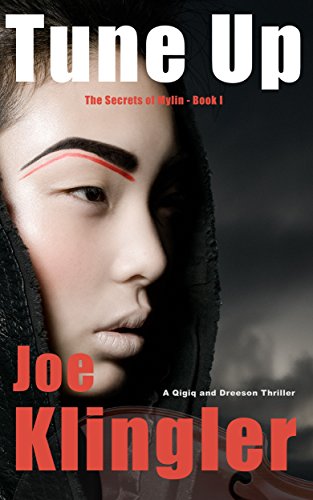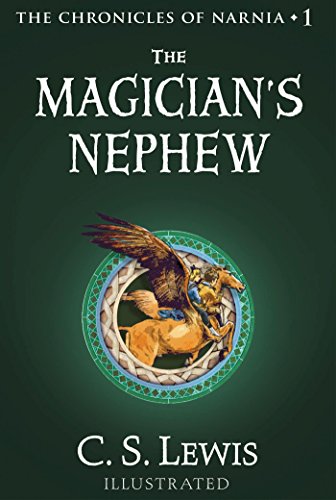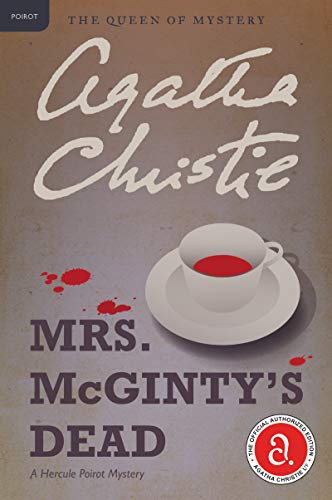“Brilliant! An intellectually unique and pleasurable read…”
From award-winning author Benson Grayson, master manipulator of the provocative “what if?” scenario, comes this entertaining collection of 38 witty and surprising tales.
33% off the regular price for five days only!
STRANGE SCIENCE FICTION AND FANTASY OMNIBUS
by Benson Grayson
Designed to entertain and stimulate, these thirty-eight intriguing stories of science fiction and fantasy reveal events no one else has ever dared to expose, along with a healthy dose of political and social satire.
an excerpt from
Strange Science Fiction
and Fantasy Omnibus
by Benson Grayson
Copyright © 2014 by Benson Grayson and published here with his permission
THE MAN ON THE MOON
Herman Hawthorne was unique in two distinct areas. He was the third richest individual in North America, thanks to his late father’s early investment in the shale oil industry. Secondly, he was the world’s worst curmudgeon. Hawthorne cared not one iota for the opinions of other people. Everyone except him, he said often and loudly, was either a fool or a charlatan, or both. Naturally, he could hardly be said to be well liked.
None of Hawthorne’s views were widely accepted and most were almost universally discredited. His claims that the germ theory had no basis of fact but was actually invented by the Pinnacle Pharmaceutical Company in 1904, in what was a highly successful campaign to increase the sales of its drugs was universally scoffed at, despite Hawthorne’s proof that a high percentage of all pharmaceutical products are today actually purchased by individuals responding to widespread television advertising. Similarly, his assertions that earthworms actually do fall from the sky when it rains, rather than simply fleeing their flooded homes was flatly denied by all reputable scientific bodies, notwithstanding Hawthorne’s clear evidence that no widespread scientific research had ever been conducted to objectively look into his theory.
Hawthorne was born and raised in northern Florida, far from the family’s holdings of shale oil leases but close to the bank, to which all the royalties from the shale oil operations were funneled. As a child, Hawthorne was taken by his father to observe one of the space shuttle launches at Cape Canaveral and this incident made a lasting impression on him. Not a favorable impression. Even as a child, Hawthorne distrusted what anyone told him and thought the so-called space shuttle launch was a giant fraud.
Growing to adulthood, Hawthorne’s greatest campaign was aimed at proving that NASA’s statements about space exploration were all part of a giant hoax, designed to illegally obtain funds by whichever corrupt administration was in power in Washington. “Can you honestly believe,” he would assert to all who would listen, “That we actually sent a manned expedition to the moon? Why even Jules Verne’s novel A Trip to the Moon is more creditable.”
Hawthorne was so certain of his derogatory opinion about NASA that he decided to obtain the necessary proof. There were fewer obstacles to Hawthorne attempting to do this than for most other individuals because of his great personal wealth. But even for a person with Hawthorne’s resources to replicate the American space program would have been too costly.
Fortunately, Hawthorne had other arrows in his quiver. Alone among prominent Americans, Hawthorne had strongly endorsed the Russian annexation of the Crimea. Ignoring popular outcry, he further loudly identified himself with Moscow’s call for Ukraine to cease its effort to join the European Economic Union. Russian President Vladimir Putin was so grateful over this rare show of foreign support for his policies that he sent a warm, personally hand-written note to Hawthorne, thanking him and inviting him to visit Russia.
Hawthorne quickly accepted the invitation and travelled to Russia. In Moscow, he was treated with the same ceremony as would be accorded a friendly head of state. At the formal dinner in his honor, he was seated at the table next to the Russian President, and he and President Putin spent almost two hours in friendly conversation. It was during this meeting that Hawthorne extracted from Putin a promise that Russia would permit him to use its space facilities to send his own expedition to the moon.
The Russian President probably did not expect he would have to honor his promise to Hawthorne. After all, of what use is a commitment to use Russian space facilities if one does not have a space capsule. Hawthorne had no official backing so there was no practical chance of his buying or borrowing a space capsule. Undaunted, Hawthorne thanked Putin, departed Moscow the next day and back in the United States began furious efforts to obtain a space capsule. With his great wealth, it was still difficult but not impossible.
After examining his options, Hawthorne heard of an ex-Air Force Major and former astronaut, Harley Mathews, who had been forced out of the program after a series of highly-publicized extra-marital affairs. The one-time astronaut had NASA Training to pilot a space capsule. Mathews was now in bad financial shape, attempting to eke out a living as a salesman of aluminum siding while paying large alimony payments to his former wife, and providing child support to the unwed mother with whom he had fathered a child.
Hawthorne contacted Mathews and offered him a six-figure salary and two year contract if he would agree to head the proposed expedition to the Moon. His duties would include designing a capsule for the journey and then piloting it. Despite the great temptation of the financial package, Mathews truthfully explained the many practical obstacles in the way of such a project. His objections were dismissed and Mathews agreed, assuming that Hawthorne would come to realize the futility of his plan and abort it, but not before Mathews would receive a healthy cash infusion.
Without further delay, Hawthorne purchased a closed auto manufacturing plant in Michigan and installed Mathews in an office on the top floor, formerly housing the factory management. From his office, Mathews could observe the work of the labor force on the factory floor below. Mathews’ first task was to draw up the plans for a space capsule capable of transporting a crew of two from the Earth to the Moon, landing on the Moon’s surface, and then safely returning the crew back to Earth.
Initially Mathews just went through the motions, aware of the apparent futility of the project. He was astounded when Hawthorne asked to see the plans, carefully inspected them and then gave Mathews detailed instructions on how to improve them. Mathews realized that although Hawthorne was eccentric, he was nevertheless extremely intelligent and had good technical knowledge.
The finished design was for a space capsule resembling in appearance a rustic log cabin. Despite its odd appearance and its smaller size than the space capsules designed by NASA, it was theoretically possible for it to reach the Moon. In some respects it was even better. Mathews was aware, from personal experience in piloting a space capsule, of defects he could now correct. He now employed new technology and material developed since the original space capsule design was finalized. Its thrust engines were more powerful than earlier ones and capable of extreme speeds, despite the relatively heavier weight of Hawthorne’s capsule, due to the reinforcing of its sides to prevent damage from collisions with dust particles in space.
The plans completed, it was now time to begin the manufacture and assembly of the various component parts. Some were to be manufactured in the plant, others to be obtained from outside suppliers. Hawthorne showed great skill in supervising the award of the contracts. He was aided by the fact that he did not have to employ certain companies as suppliers that had powerful advocates in Congress, nor was he obliged to purchase from the lowest cost bidders who might actually be unable or unwilling to supply the highest quality item.
Mathews had no difficulty in assembling a trained work force, being able to choose from among the many unemployed workers in the area. The space capsule was completed ahead of schedule and shipped to the East coast to be loaded onto a fast merchant vessel chartered by Hawthorne to transport it to a Russia Black Sea port. When the ship neared its destination, Hawthorne and Mathews flew directly to Moscow on Hawthorne’s private jet.
Russian President Putin was surprised and annoyed by Hawthorne’s arrival. He was deeply involved in handling the crisis with Ukraine, seeking to keep that country within the Russian orbit while avoiding a rupture with Western Europe and the United States. He never anticipated when he made his vague commitment to Hawthorne that he would actually request the use of the Russian space facilities to send an expedition to the Moon. Putin therefore invited Hawthorne to tea at the Kremlin, planning to spend only a few minutes with him and then return to more important matters.
Their meeting did not go as the Russian President had planned. Hawthorne not only voiced his strong endorsement of all Russian actions toward Ukraine, but volunteered to repeat them at a news conference in Moscow and again in Washington. Putin was particularly overjoyed by Hawthorne’s declaration that “If he had been in Putin’s shoes, he would react just as Putin had reacted.” A public statement like this from one of the most powerful American business leaders would clearly aid Russian propaganda and greatly bolster Putin’s standing in Western Europe.
Unsurprisingly, the Russian President quickly agreed to Hawthorne’s request for help with his expedition. Putin issued instructions for Russian officials to accord every possible assistance and to treat the proposed launch to the Moon as the equivalent of a top priority Russian project. When the vessel transporting Hawthorne’s space capsule docked, it was unloaded promptly and sent by rail to the Russian space launch facility at Baikonur in Kazakhstan. After his press conference, at which he repeated the statements on Russian policy toward Ukraine which he had told Putin, Hawthorne and Mathews were flown on Putin’s personal jet to Baikonur.
The lift off a few days later went according to plan. Mathews, extremely nervous and not certain that the capsule would actually survive in space, found that when he took control it functioned perfectly. The capsule and its two man crew enjoyed an uneventful flight to the Moon with everything going well except for Hawthorne’s stomach, which rebelled at the feeling of weightlessness in space. At the critical moment when the capsule was to land on the Moon’s surface, Mathews did an excellent job, executing a smooth landing.
As soon as the ship stopped moving, Hawthorne rushed to dress himself to begin his exploration. He had equipped the capsule with only one protective suit, seeing no reason why Mathews needed to leave the ship. Giving Mathews instructions to prepare for a return to Earth as soon as he returned, Hawthorne went through the airlock and stepped down onto the moon.
Hawthorne did not expect to spend much time on the moon. He was quite sure that he would learn enough in a few minutes to confirm his suspicion that no human had ever actually landed on the moon, and that all accounts to the contrary had been fabricated for ulterior purposes. He felt much better even in his confining space suit than he had during the trip, his stomach having returned to normal.
Notwithstanding the heavy space suit, Hawthorne made good progress, aided by his much lighter gravity on the moon. He ascended a small hill and then saw in front of him a depression in the surface, about twelve feet deep and probably some thirty yards long and wide. In the center was a large circular mound. The height above the mound declined on a gentle gradient and Hawthorne was able to walk down it with no difficulty.
Nearing the mound, he changed his mind about it. It did not look like a hill and in fact like something not naturally made. Could it be a house? His mind rebelled at that thought. Circling the mound he saw what might be a door. Feeling very foolish he approached it and knocked. The door swung open. Inside Hawthorne saw a human type figure. At first glance, it appeared to be his own height, but when looking down he realized it was floating about a foot in the air. It was wearing some type of white garment and emitted a type of soft radiance.
“Are you a Moon Man?” Hawthorne asked, hardly believing his eyes and feeling very foolish in asking.
“Don’t be idiotic!” came back the answer in perfect English. “What else could I be? Do you really think I might be a Martian?”
Hawthorne was taken aback. He was pondering what to say when the Moon Man went on. “You might as well take off that helmet you’re wearing around your head. There is plenty of oxygen in this depression for you to breathe properly.”
Feeling he was taking a dangerous risk, Hawthorne unscrewed his helmet, removed it, turned off the oxygen supply coming from the tube mounted in the back of his space suit, and took a breath of the air. It was surprisingly fresh.
“You see, “said the Moon Man triumphantly. “Now sit down and make yourself comfortable.
Hawthorne sat down on what looked like a chair. Apparently the Moon people did not always float in the air but availed themselves of furniture. “Would you care for some Moi?” The Moon Man asked, speaking more politely than before. Before Hawthorne could answer, he poured a thick, viscous red liquid from a flask into a metal goblet and handed it to Hawthorne. The visitor from Earth tasted it, found it surprisingly refreshing and downed the contents.
“What is this?” he asked. “I didn’t think you could grow anything on the Moon.”
“We can’t,” came back the reply. “Moi is an organic compound manufactured in the molten core of the Moon and forced up through cracks in the surface of depressions such as the one in which I am living. That’s the way we get our oxygen as well. Forced up from the core. I believe our Moi may be similar to the manna referred to in your Old Testament as being furnished by your God to help the Israelites survive in the desert.”
Hawthorne was amazed that the Moon Man knew so much about events on Earth and spoke such colloquial English. When he inquired, the Moon Man explained that the inhabitants of the Moon regularly listened to radio broadcasts emanating from the Earth. “We also receive your television signals,” added, “But they are usually too scrambled for us to make much sense of them. Additionally, we learned your language when we sent exploratory missions to Earth many centuries ago. We decided at that time you were too primitive a species for us to have any interaction with, always concentrating on murdering each other, and that in the future we should do all that we could to prevent you from learning of our existence.”
“If you actually visited the Earth,” Hawthorne asked, “Why is there no record of it in our history?”
“Actually, there is,” came back the answer, which left Hawthorne even more confused. “Many of your accounts of ghosts represent human sightings of us. If you think about it, you can see our appearance is rather similar to the descriptions of ghosts.”
Remembering the purpose of his mission to the Moon, Hawthorne said. “I am very glad to have made the trip here and to have met with you. I always suspected that all the reports of NASA expeditions reaching the Moon and exploring it were fabricated. If they had really done so, they would have encountered you or other Moon People and reported that to Earth.”
“You’re being foolish again,” the Moon Man said reproachfully, “they didn’t see us because we deliberately concealed our existence from them. It’s a simple matter to camouflage our depressions and our residences so they are indistinguishable from the Moon surface.”
Hawthorne realized that he had spent considerable time speaking with the Moon Man and that it was necessary for him to leave and return to the space capsule. “One last question,” he said. “Since you Moon people have taken such pains to avoid Earthmen learning of your existence, why have you revealed yourself to me?”
“That’s very simple,” came back the answer. “There are three reasons. In the first place, if you told the people on Earth what you have seen and heard, they would not believe you. You would be confined in a mental institution. The second reason is that if they did believe you and sent another mission here to look for us, we would simply conceal our existence, as we did during your previous Moon walks. Of course, the third reason is the most important.”
“And what is that?’” Hawthorne blurted out.
“It’s just this. You are never going back to Earth. You are here permanently.”
“What do you mean?”
“Go to the door and look out.” explained the Moon Man.
Hawthorne rushed to the door and opened it. High in the sky, disappearing from sight, he beheld the spacecraft returning to Earth. He cried out in horror and began cursing, then sobbing. In a few minutes, however, he regained his composure. Actually living permanently on the Moon with the Moon people would not be that bad. Their Moi was pretty tasty fare. If he stayed here, he would not have to undergo that awful feeling of weightlessness again. But best of all, if he stayed here, he would be dealing with a species much more rational, more intelligent and nicer than what he had observed on Earth.
… Continued…
Download the entire book now to continue reading on Kindle!
Special Kindle Price: $1.99!
(reduced from $2.99 for
a limited time only)



















